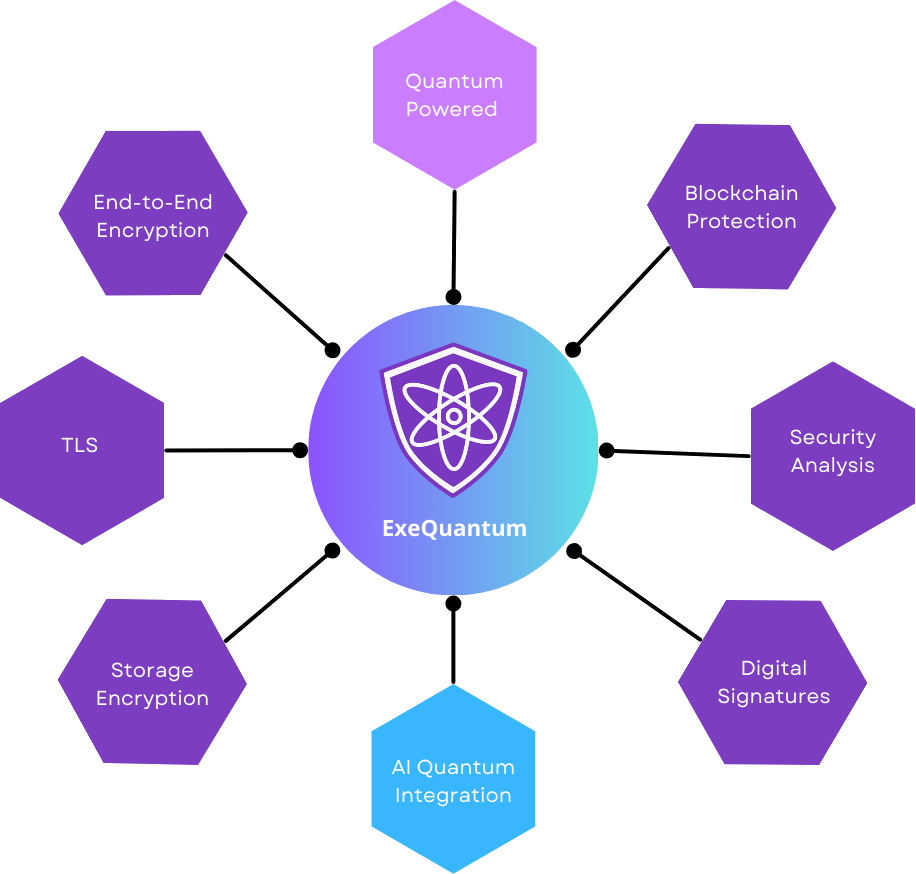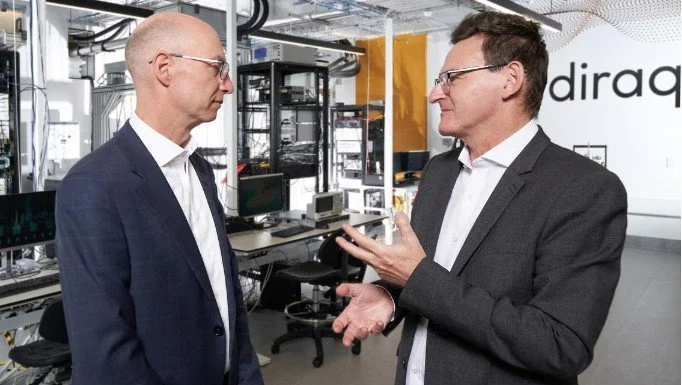ExeQuantum – Building Quantum-Resilient Encryption across Industries
In this Start-up Spotlight, we shine a light on ExeQuantum — an Australian innovator tackling one of the most urgent challenges in the digital age: preparing our encryption systems for the quantum future.
ExeQuantum Servies (Supplied: ExeQuantum)
Quantum computing is poised to upend digital security as we know it. Many of today’s widely used encryption standards, like RSA and ECC, will become vulnerable, placing everything from online banking and cloud storage to secure messaging and infrastructure systems at risk.
To address this challenge, Post-Quantum Cryptography (PQC) is being developed. PQC includes cryptographic methods designed to remain secure even in the presence of large-scale quantum computers. Global efforts, including those by the U.S. National Institute of Standards and Technology (NIST), are underway to standardise these methods.
ExeQuantum, founded by Samuel Tseitkin, is an Australian start-up focused on building the infrastructure needed for post-quantum security. The company focuses on infrastructure for post-quantum security and reports ongoing work with partners in industries such as construction, manufacturing, fitness, fintech, and IoT.\
Understanding the Urgency
While commercial quantum computers are still in development, the possibility of encrypted data being intercepted today and decrypted in the future, known as “harvest now, decrypt later”, is driving early action. This is particularly relevant to data requiring long-term confidentiality, such as financial records, health information, and infrastructure systems.
The shift to post-quantum cryptography isn’t just a future-proofing exercise, it’s about protecting the sensitive data we depend on right now. From financial transactions and construction data to wearable tech and industrial systems, quantum resilience is becoming essential across sectors. By acting early, our clients are not only mitigating risk, they’re gaining a strategic advantage in a rapidly evolving threat landscape. Samuel Tseitkin, Founder, ExeQuantum
In Australia, the Information Security Manual identifies 2030 as a transition target for quantum-resilient encryption. Internationally, NIST has selected algorithms such as ML-KEM and Dilithium as recommended standards.
Despite this progress, PQC implementation presents challenges. Integrating new cryptographic algorithms into existing infrastructure involves technical complexity, interoperability considerations, and potential security risks if poorly deployed.
Industry Use Cases
ExeQuantum is exploring post-quantum cryptography applications across a range of industries:
Construction and Manufacturing: Where digital workflows connect cloud platforms with on-site systems, post-quantum cryptography is being considered to protect data integrity and synchronisation.
Fitness and IoT: As wearable devices and health monitoring tools become more common, securing communications in low-power or bandwidth-limited environments is a focus. Remote cryptographic processing through APIs is one approach being explored.
Financial Services and Fintech: With increasing regulatory focus, the financial sector is assessing quantum-resilient encryption to protect transactions, customer data, and authentication flows.
Approaches to Deployment
ExeQuantum’s model uses APIs to deliver cryptographic functions. This allows developers to access post-quantum encryption through interfaces without embedding cryptographic code directly into their applications. This API-based approach may support consistency across platforms and reduce integration complexity, particularly where cryptographic expertise is limited.
In sensitive environments, organisations may prefer to host these services internally to maintain tighter control over latency, data handling, and security.
ExeQuantum has documented pilot deployments in the IoT and fintech sectors, where PQC is being applied to secure device communication and digital identity verification, respectively.
Looking Ahead
As quantum computing capabilities advance, post-quantum cryptography is expected to become a foundational element of digital infrastructure. While sector-specific timelines may vary, global and national standards are encouraging early and proactive adoption.
Start-ups like ExeQuantum are part of a broader national effort to prepare Australia for a quantum-enabled world. Their work highlights how quantum-safe technologies aren’t just theoretical, they’re being built and deployed now, across real industries and in response to global security needs.
Supporting Australian Start Ups
Quantum Australia is supporting start-ups like ExeQuantum as part of a broader national effort to prepare Australia for a quantum-enabled world.
ExeQuantum highlights how quantum-safe technologies aren’t just theoretical, they’re being built and deployed now, across real industries and in response to global security needs, and Quantum Australia is working with researchers and entrepreneurs to build more quantum businesses with real impact in our society.
Related articles








